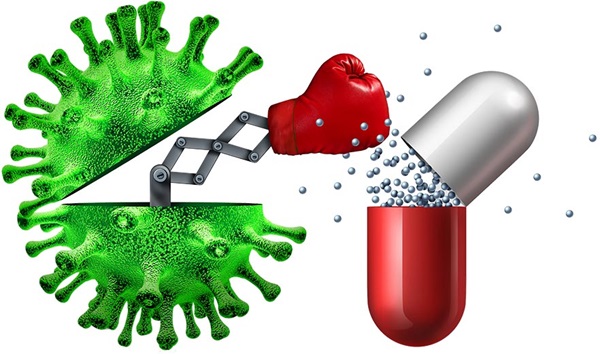
Public health experts have raised concerns over the growing economic burden of Antimicrobial Resistance (AMR) on Nigeria’s healthcare system, warning that its financial impact is becoming increasingly unsustainable.
The rising prevalence of drug-resistant infections is not only affecting treatment outcomes but also significantly driving up healthcare costs, potentially jeopardising Nigeria’s progress toward achieving Universal Health Coverage (UHC).
Speaking to Science Nigeria in a separate interview on Thursday in Abuja, health professionals explained that AMR occurs when bacteria, viruses, fungi and parasites develop resistance to drugs that were once effective in treating them. As a result, infections become harder to manage, leading to increased medical expenses and placing additional strain on an already fragile healthcare system.
The director of the National Veterinary Research Institute (NVRI) in Plateau State, Dr. Sati Nguluku emphasised that AMR is causing a shift to more expensive and often less effective antibiotics.
“The cost of treating resistant infections is significantly higher. A patient who could have been treated with a simple antibiotic now requires more intensive treatments, which involve prolonged hospital stays and the use of intravenous medications. These additional costs are overwhelming both families and the healthcare system,” Nguluku said.
The head of disease prevention and control at the Nigeria Centre for Disease Control (NCDC), Dr. Tochi Okwor referenced a 2022 study by the agency, which found that AMR contributes to over 250,000 excess hospital days each year, leading to billions of naira in additional healthcare expenditures.
“Treating infections caused by resistant pathogens can be up to ten times more expensive than treating non-resistant infections,” she stated.
Beyond direct healthcare costs, AMR has a profound impact on productivity. Okwor highlighted the significant economic losses resulting from prolonged illness and absence from work.
“According to the World Bank, the global economic loss from AMR could reach 3.8 per cent of GDP by 2050, with low- and middle-income countries like Nigeria bearing the heaviest burden. The Federal Ministry of Health estimates that AMR-related productivity losses in Nigeria amount to an estimated ₦500 billion annually. Workers affected by resistant infections are unable to contribute to the economy, while caregivers are forced to spend extended periods away from their jobs to provide care,” she noted.
The director-general of NCDC, Dr. Jide Idris pointed out that AMR disproportionately affects vulnerable populations in Nigeria, including children, the elderly, and pregnant women. The difficulty in accessing timely and affordable healthcare due to resistance exacerbates health inequalities.
“As AMR continues to rise, the economic implications for families and the healthcare system will only worsen,” Idris warned.
One major factor contributing to the increasing burden of AMR is the misuse of antibiotics in agriculture, particularly in the livestock industry. Idris pointed to the excessive use of antibiotics in poultry farming as a significant driver of resistance. Additionally, counterfeit and substandard drugs flooding the Nigerian market are exacerbating the problem.
The deputy director of the National Agency for Food and Drug Administration and Control (NAFDAC) and Antimicrobial Resistance-Human Health (AMR-HO) focal person, Dr. Tunde Sigbeku warned that unless immediate actions are taken to curb the misuse of antibiotics and improve drug quality, Nigeria could soon face a crisis where even the simplest infections become untreatable.
“The economic losses from AMR, coupled with the societal impact of rising mortality rates, could be catastrophic for Nigeria,” Sigbeku said.
In response to the growing threat, the Nigerian government has implemented the National Action Plan on AMR (2024–2029), which aims to strengthen antimicrobial stewardship, improve surveillance, and raise public awareness. However, experts argue that enforcement of regulations and increased funding for AMR research remain major challenges.
The director of public health at the Ministry of Health and Social Welfare, Dr. Godwin Ntadom stressed the need for stronger policy measures and collaboration across sectors.
“AMR is a national health emergency. We need to unite health, agriculture, and pharmaceutical sectors to combat this threat effectively.”
Former deputy project director of risk communication at Breakthrough ACTION Nigeria, Dr. Olayinka Umar-Farouk called for urgent action to address the rising economic burden of AMR.
“The cost of inaction will be far greater than the cost of intervention. We must prioritise AMR prevention to protect our health system and secure the future of Nigeria’s healthcare,” she emphasised.
Umar-Farouk noted that the economic impact of AMR on Nigeria’s healthcare system is undeniable.
“From skyrocketing treatment costs to significant losses in productivity, the financial burden is becoming unsustainable. Urgent intervention is needed to reduce the spread of resistant infections, improve regulation and ensure that Nigeria’s healthcare system remains resilient in the face of this growing threat,” she said.
As Nigeria strives to achieve Universal Health Coverage, Umar-Farouk stressed that addressing AMR is not just a healthcare issue; it is an economic imperative that requires immediate and coordinated action from all sectors. Without urgent intervention, the long-term effects of AMR could undermine the country’s healthcare progress, placing millions of lives at risk and straining national resources beyond sustainability.
The experts collectively called for increased public awareness campaigns, stringent regulatory enforcement and government-led initiatives to improve access to quality antimicrobials and reduce the misuse of antibiotics across sectors. They emphasised that combating AMR requires a multi-sectoral approach involving public health professionals, policymakers, researchers, and community stakeholders.
As AMR continues to rise, Nigeria faces a critical juncture. Without proactive measures, the financial strain on the healthcare system will continue to mount, threatening the health and economic stability of the nation. Experts urge that now, more than ever, decisive action must be taken to curb this growing crisis and ensure a healthier, more sustainable future for all Nigerians.

